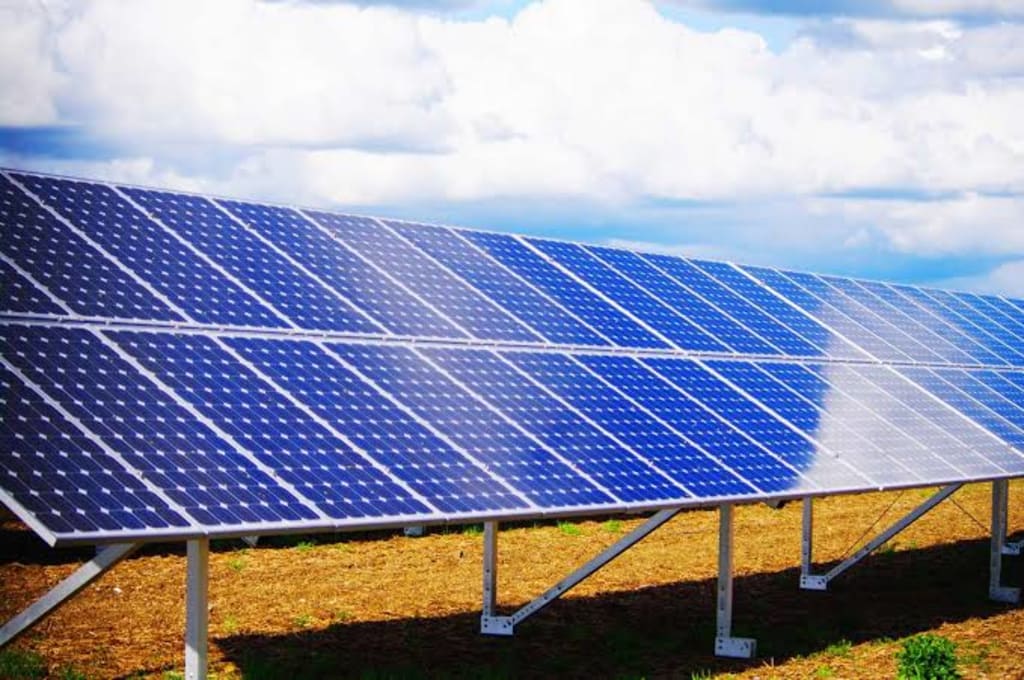"Sustainability: The Urgent Need for a Balanced Future"
"Climate Change and Depletion of Resources: Why Sustainability is a Hot Topic" "Finding a Balance: Meeting Present Needs Without Compromising Future Generations" "The Importance of Social Sustainability: Promoting Equality and Reducing Poverty" "Taking Action for a Sustainable Future: Reducing Emissions and Promoting Renewable Energy"

Sustainability: The Urgent Need for a Balanced Future
Sustainability has become one of the most critical issues facing humanity today. As we continue to consume and exploit the world's natural resources, we are rapidly approaching a point of no return. The world is facing a crisis that requires immediate attention and action from all of us. We must begin to live in a more sustainable way to ensure that future generations have access to the resources they need to survive.
The concept of sustainability is not new. It has been around for decades, and it refers to the ability to meet the needs of the present without compromising the ability of future generations to meet their own needs. In other words, sustainability is about living in a way that does not deplete the Earth's resources or harm its ecosystems. Sustainability is not just about protecting the environment; it's about finding a balance between environmental, social, and economic needs.
The need for a more sustainable future has never been more urgent. Climate change, pollution, deforestation, and biodiversity loss are just some of the issues we are facing. The consequences of these problems are already being felt, from more frequent and intense natural disasters to food and water shortages. If we do not take action now, the situation will only get worse.
To create a sustainable future, we need to address the root causes of these problems. This means changing the way we live and work, shifting to more sustainable practices and technologies. For example, we need to transition away from fossil fuels and toward renewable energy sources like solar and wind power. We also need to reduce our consumption of resources, such as water and materials, and make sure that we use them more efficiently.
Sustainability is not just about the environment; it's also about social and economic factors. We need to ensure that everyone has access to the resources they need to live a decent life, such as food, water, and healthcare. We also need to promote social equity and justice to ensure that all people, regardless of their race, gender, or socioeconomic status, have an equal opportunity to thrive.
Achieving a more sustainable future will require a collective effort. Governments, businesses, and individuals all have a role to play. Governments can enact policies and regulations that promote sustainable practices and provide incentives for businesses and individuals to adopt them. Businesses can reduce their environmental footprint by implementing sustainable practices in their operations and supply chains. Individuals can make simple changes in their daily lives, such as reducing energy consumption and waste.
We must also work together on a global level to address the challenges of sustainability. The United Nations has set Sustainable Development Goals (SDGs) to guide countries and organizations in creating a more sustainable future. The SDGs address a wide range of issues, including poverty, hunger, health, education, gender equality, clean water and sanitation, affordable and clean energy, decent work and economic growth, industry innovation and infrastructure, reduced inequalities, sustainable cities and communities, responsible consumption and production, climate action, life below water, life on land, peace, justice and strong institutions.
Each one of us can contribute to a more sustainable future. Here are some things you can do to make a difference:
Reduce your energy consumption: Turn off lights and electronics when you're not using them, switch to energy-efficient light bulbs, and unplug appliances when you're not using them.
Reduce your water consumption: Fix leaks, take shorter showers, and use a low-flow toilet.
Reduce your waste: Recycle, compost, and buy products with minimal packaging.
Reduce your carbon footprint: Walk, bike, or take public transportation instead of driving, and eat a plant-based diet.
Support sustainable businesses: Buy from companies that use sustainable practices in their operations and supply chains.
Support policies and regulations that promote





Comments
There are no comments for this story
Be the first to respond and start the conversation.